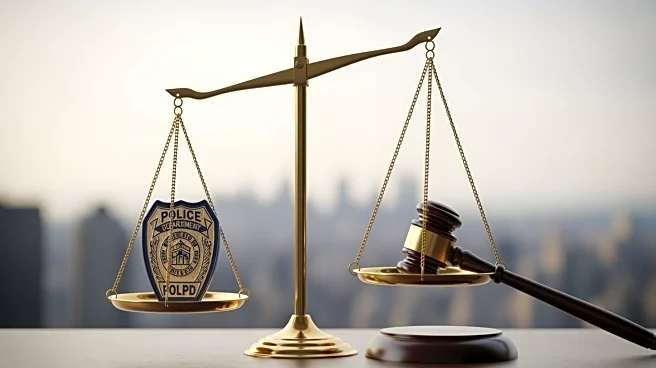What's Happening?
Zohran Mamdani has proposed a significant change in the disciplinary process of the New York Police Department (NYPD) by suggesting that the final authority on police officer discipline be transferred
from the NYPD commissioner to the Civilian Complaint Review Board (CCRB). Currently, the CCRB can recommend sanctions for officer misconduct, but the police commissioner has the discretion to accept or modify these recommendations. Mamdani's proposal aims to give the CCRB, which is perceived by some as anti-police, the ultimate say in disciplinary matters. This shift is seen as potentially undermining the chain of command within the NYPD, as the CCRB's interests may not align with those of the police commissioner, whose primary focus is maintaining public safety and order.
Why It's Important?
The proposal has sparked debate over its potential impact on public safety and police morale. Critics argue that transferring disciplinary power to the CCRB could lead to disorganization within the NYPD and discourage proactive policing. The CCRB, composed largely of members without law enforcement experience, may not fully appreciate the complexities of police work, leading to decisions that could demoralize officers and affect their willingness to serve. This change could also make the role of police commissioner less attractive to qualified candidates, potentially affecting the department's leadership and effectiveness in crime control.
What's Next?
If Mamdani's proposal gains traction, it could lead to significant changes in how police discipline is handled in New York City. The proposal may face opposition from police unions and other stakeholders concerned about its implications for public safety and police operations. The debate is likely to continue as stakeholders weigh the potential benefits of increased civilian oversight against the risks of undermining police authority and effectiveness.
Beyond the Headlines
The proposal raises broader questions about the balance between civilian oversight and police autonomy. It highlights ongoing tensions between law enforcement agencies and communities seeking greater accountability. The outcome of this debate could influence similar discussions in other cities, potentially reshaping the landscape of police governance and accountability across the United States.










